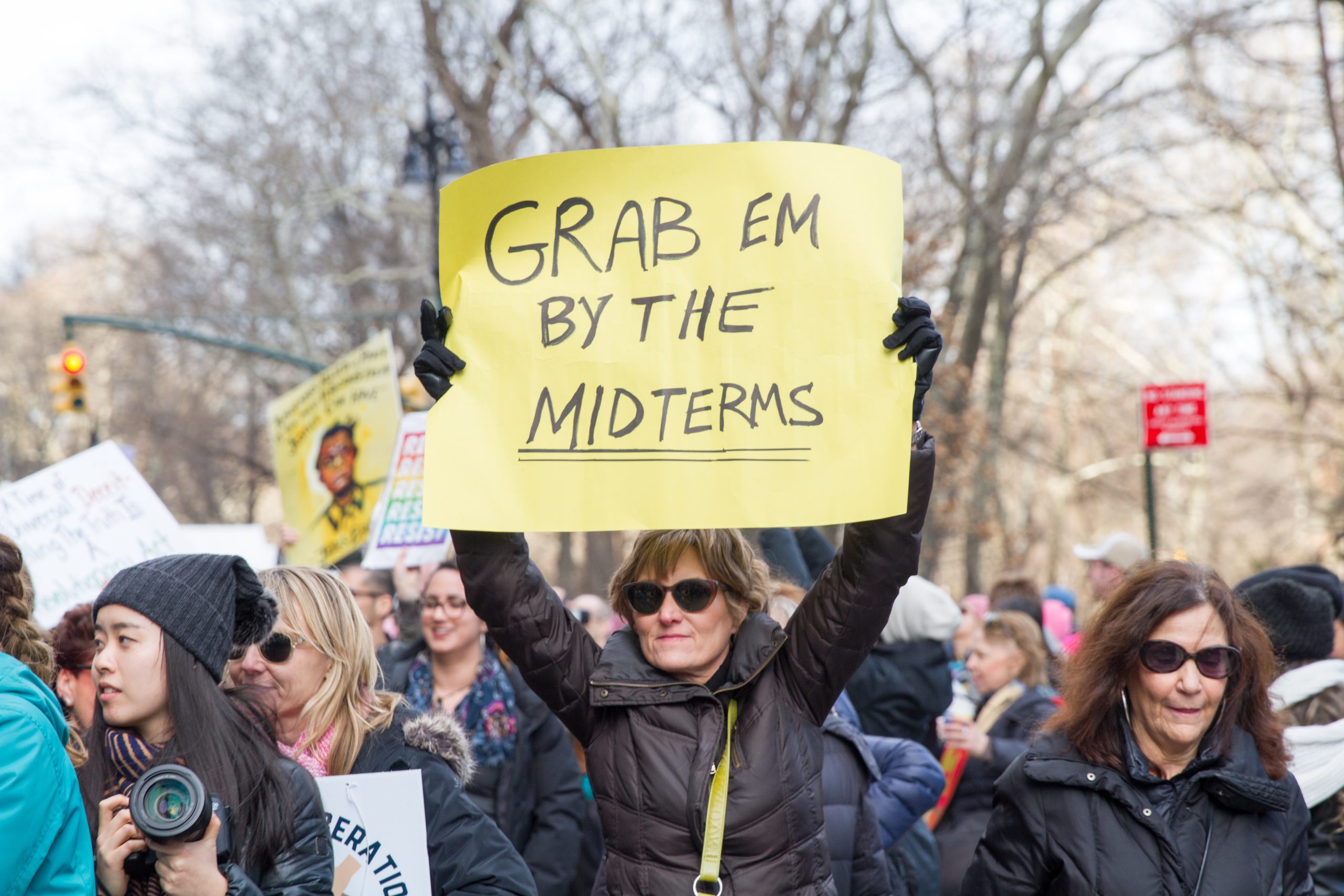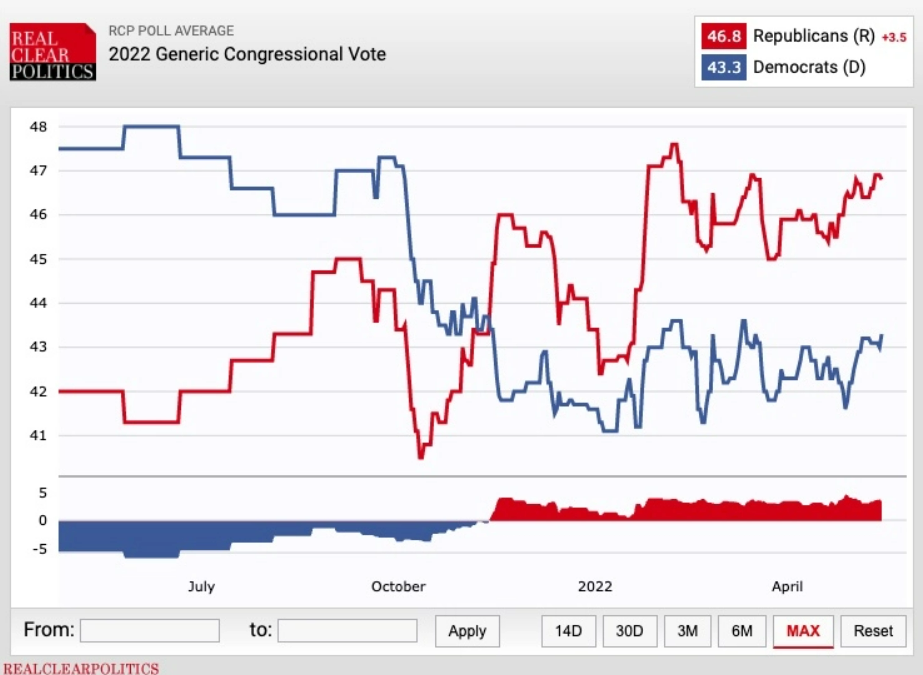
Chris Lange, FISM News
[elfsight_social_share_buttons id=”1″]
Recent polling data shows that Democrats’ control of the House may be in more jeopardy than the party has previously let on.
The Democratic Congressional Campaign Committee’s own polling shows that, in the generic ballot, Republicans are beating Democrats 47-39 in battleground districts, Punchbowl News reported. The most recent Monmouth poll gives the GOP a seven-point advantage overall, not just in battleground states, while Real Clear Politics’ generic-ballot aggregate average shows Democrats are down 3.5 points.

Punchbowl News said the polling exposes a “stunning margin” by electoral standards that suggests Democrats are “in worse political peril than they’ve let on publicly,” lending credence to growing concerns within the party of a potential wipeout in the November midterm elections.
“Given that Democrats generally have a three- or four-point built in advantage on the generic ballot, this is a particularly concerning development for Speaker Nancy Pelosi’s majority. An eight-point deficit on the generic ballot could be a sign of a wave for House Republicans,” the news outlet said.
The DCCC reportedly responded to the grim numbers by telling caucus members to step up their “MAGA Republicans” rhetoric and unfounded accusations that the GOP embraces a white supremacist conspiracy theory. Democrats and the mainstream media have seized on Saturday’s racially motivated mass shooting by a white man in a predominantly-black neighborhood store in Buffalo to smear Republicans as proponents of the so-called “great replacement theory,” an extremist belief that the government seeks to replace whites with minorities.
“Frontline Democrats’ record of delivering for their communities means they head into November ready to defeat extremist MAGA Republicans, who will have to defend their plan to implement a nationwide abortion ban and their embrace of white supremacist ‘great replacement’ theories,” read a statement from the DCCC.
This spring’s primaries ought to serve as another red flag for Democratic incumbents, particularly in two swing state elections. Republican voter turnout in Ohio’s competitive primaries doubled that of Democrats, and turnout for the GOP outpaced Democrats by 140,000 ballots in Pennsylvania.
Infighting has also plagued the Democratic party leading into the midterms. DCCC chair Rep. Sean Patrick Maloney (D-N.Y.) has incurred the wrath of several caucus members over his decision to desert his newly-redrawn swing district. Instead, he chose to throw himself into a race with a progressive freshman incumbent who is black, placing party members in an unenviable predicament.
“Maloney’s decision to abandon a newly redrawn version of his current swing district — and instead run for a seat that includes most of Rep. Mondaire Jones’ turf — is raising private concerns from across the party that the Democratic Congressional Campaign Committee chief has put himself in an inappropriate scenario: leading the party’s midterm strategy while potentially battling a fellow member,” Punchbowl explained.
Some members have called for Maloney’s ousting, but House Speaker Nancy Pelosi (D-Calif.) and her acolytes have so far backed the chair.
Alongside the internal wars, House Democrats have also been unable to scrap together the votes needed to pass legislation to prevent oil companies from price gouging, despite pleas from vulnerable party members. The bill was proffered as a means of mitigating the country’s historically-high gas prices, as the economy still tops voters’ list of concerns leading into November, according to the Monmouth data.
Abortion has taken the place of health care as the second-most important issue to voters following the leaked Supreme Court decision potentially overturning Roe v. Wade.
